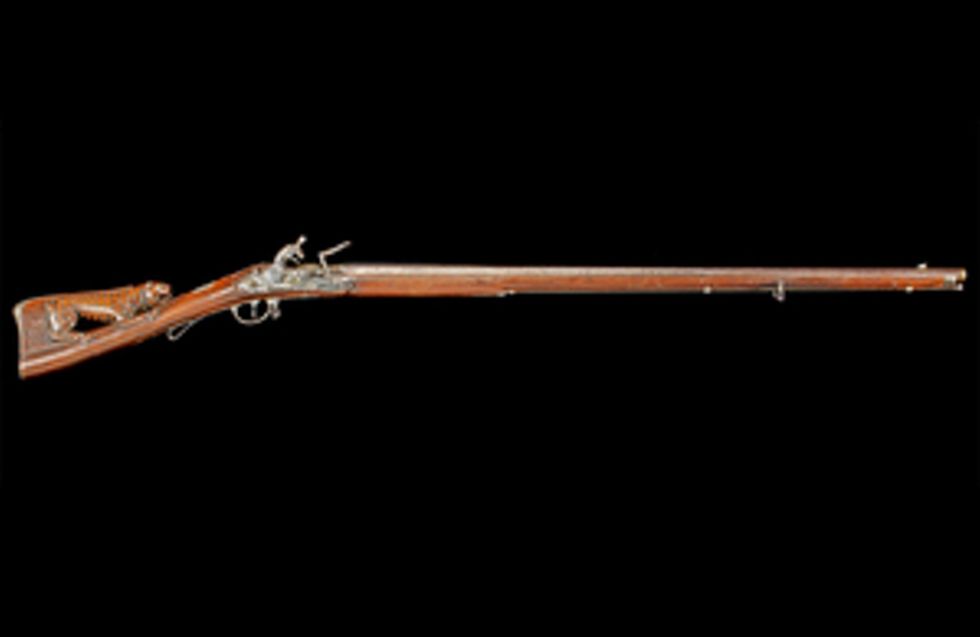A valuable 18th-century gun, intricately decorated and created in India for Tipu Sultan, the ruler of Mysore, has been prevented from being exported.
The gun, estimated to be worth approximately GBP 2 million, will now have the opportunity to be acquired by a UK institution, allowing for its public study within the context of a historically significant period in the India-UK relationship.
The decision to impose the export ban on the "Flintlock Sporting Gun" was made by Lord Stephen Parkinson, the UK Arts and Heritage Minister, based on recommendations from the Reviewing Committee on the Export of Works of Art and Objects of Cultural Interest (RCEWA).
The 14-bore gun, crafted between 1793 and 1794, was specifically designed for game hunting, particularly birds. It bears the signature of its maker, Asad Khan Muhammed.

This firearm from the British colonial era holds historical significance as it is believed to have been “presented to General the Earl Cornwallis,” who had engaged in battles against Tipu Sultan from 1790 to 1792.
“This visually striking firearm is a significant antiquity in its own right, as well as an illustration of the important, interconnected history between Britain and India,” said Lord Parkinson.
“I hope that it can be shared with the widest possible public and used to deepen our understanding of a fraught period which shaped both our nations,” he said.
Tipu Sultan, famously known as the Tiger of Mysore, was a formidable opponent of the British East India Company during the Anglo-Mysore Wars. On May 4, 1799, he was killed while defending Seringapatam.
Several remarkable artifacts from that era, including his Bedchamber Sword, have surfaced in auctions, with the sword selling for a record-breaking GBP 14 million at Bonhams in London.
After Tipu Sultan's demise, his unique personal weapons were acquired by prominent British military figures of the time.
Recognising the gun's aesthetic significance and its relevance to the study of Tipu Sultan, Lord Cornwallis, British history, and the conclusion of the third Anglo-Mysorean war, the RCEWA decided to impose an export ban on the gun.
“This is the finest and most elaborately decorated of the personal firearms made for Tipu Sultan. It is extremely beautiful as well as technically advanced,” said Committee Member Christopher Rowell.
"The mechanism allows two shots to be fired from the single barrel without reloading, revealing the probable influence of itinerant French gunmakers. Tipu's court was sophisticated and its workshops produced a variety of fine metalwork including weaponry and ordnance, which was stylish as well as deadly,” he said.
“Given its aesthetic significance, its impeccable provenance, its scope for further research and its relevance to both British and Indian history, I hope that this superb fowling piece made for the unfortunate ruler of Mysore, Tipu Sultan, will be acquired by a British Institution where it can be appreciated by all,” Rowell added.
The intricately crafted gun, adorned with gold and silver inlays, features a 138 cm length, a carved hardwood stock, silver mounts, and a steel barrel.
The export license application for the gun has been temporarily deferred until September 25. During this time, the unnamed owners of the gun will consider any offers received.
The RCEWA, an independent body supported by the Arts Council England, provides advice to the UK's Secretary of State for Culture, Media, and Sport on determining the national importance of cultural objects intended for export, based on specific criteria.
(PTI)




